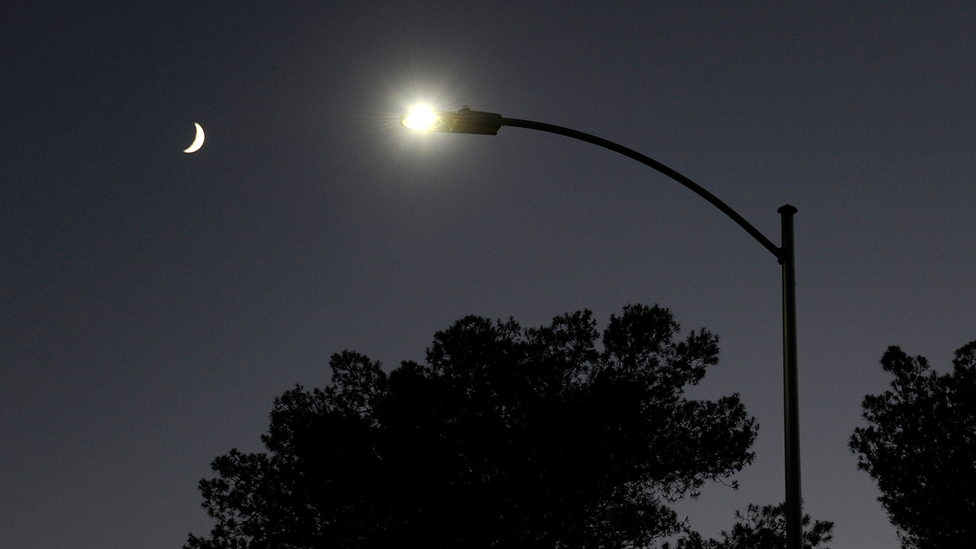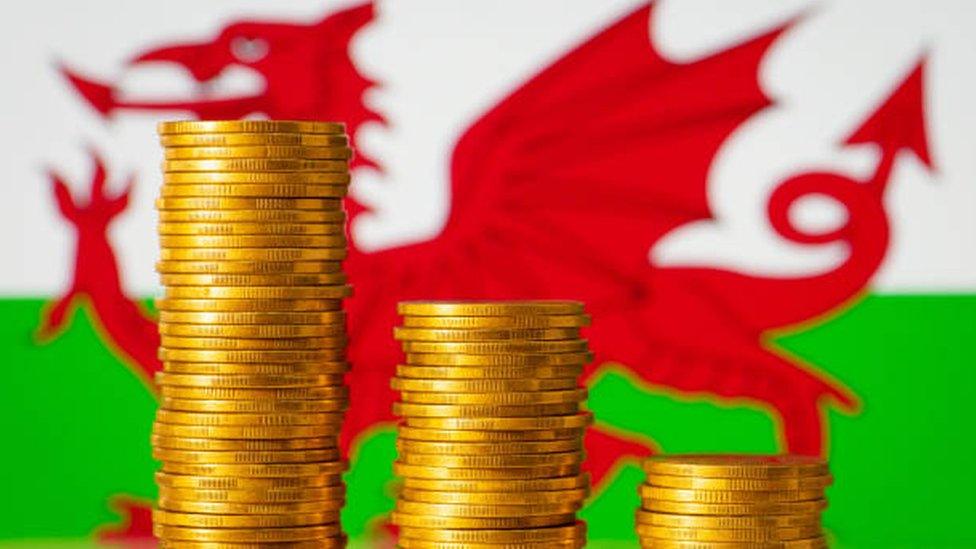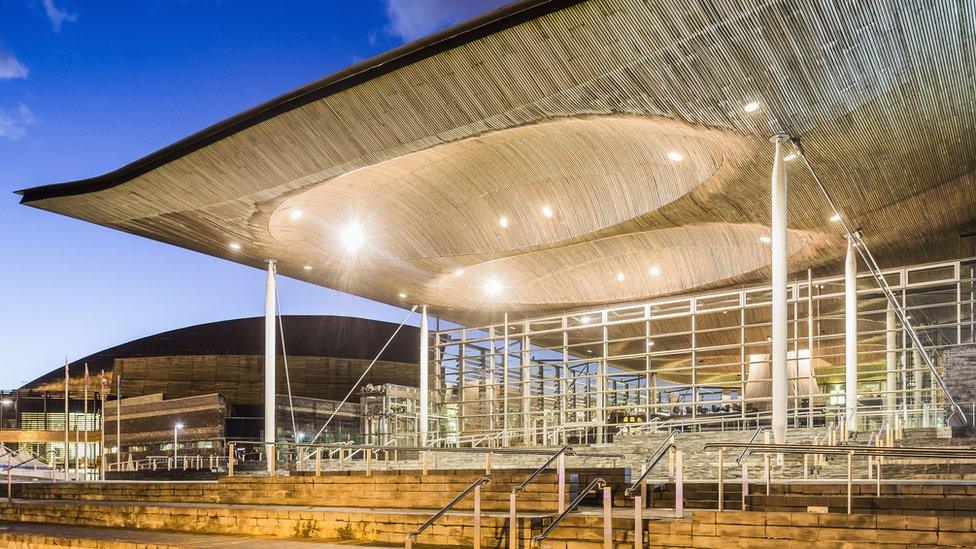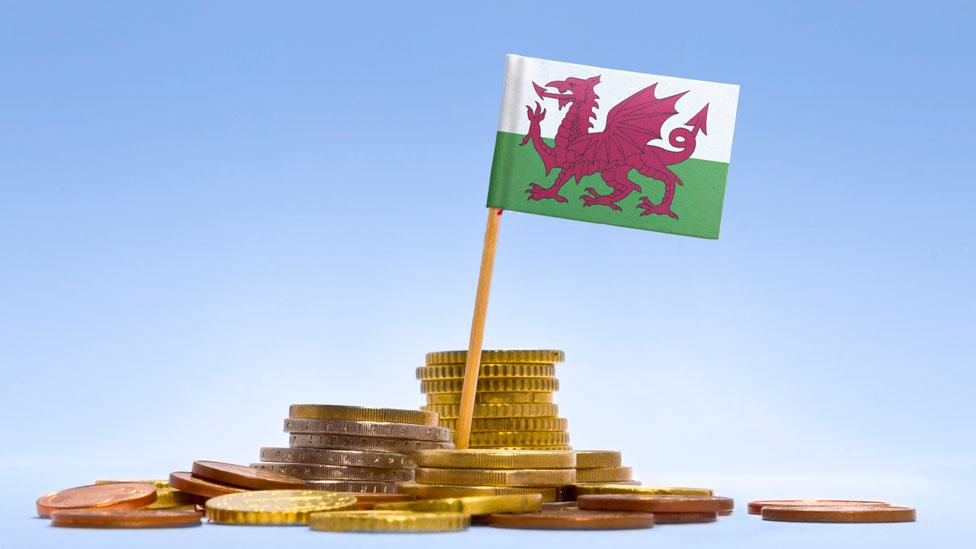Welsh budget: More pain ahead for public services?
- Published

Any extra money for the NHS might not be enough to fund significant improvements
If you use the NHS, go to the library, drive on the road, enjoy a trip to the museum or just appreciate your dustbin being collected, then this budget is likely to have a big impact on the services in Wales you need or enjoy.
There is an expectation of cuts to funding in Tuesday's announcement, by Finance Minister Rebecca Evans, of the Welsh government's 2024-25 spending plans.
Ministers have already had to balance the books this year and find hundreds of millions of pounds to prop up the health service and keep the trains running.
It now says that its budget for next year is worth £1.3bn less in real spending power than when it was set three years ago, because of the impact of inflation.
Just over 80% of the Welsh government's £20bn budget comes from the UK government at Westminster - which Welsh ministers decide how to spend.
The rest comes from taxes, including income tax.
What will have some degree of protection?
The first minister has already said that health and local government will be protected as much as possible.
In the "crisis cuts", made earlier this year, the NHS was given an extra £425m and core funding to councils was protected.
Transport for Wales was also given an extra £125m to keep the trains running, and there have been strong suggestions that extra support will need to continue.
But any extra cash for the NHS might only be enough to keep it where it is, rather than fund significant improvements, because of rising demand, high energy prices and wage increases.
Health and councils combined make up 80% of Welsh government spending, so something will have to give elsewhere.

Street lights have been switched off or dimmed late at night at many English councils
Local councils
The core funding to councils is likely to be protected from actual cuts again.
Wales' 22 councils are working on the basis that there will be a 3.1% uplift to their funding on Tuesday.
But that is still well below the rate of inflation, so means a real-terms cut.
The situation has been described as dire, with council leaders already raising the prospect of bankruptcy.
So what does that mean for services provided by local authorities like bin collections, grass-cutting, pavement repairs and street-lighting?
Some services may end up being cut, there could be job losses and your council tax is likely to go up - probably by more than 5% - as local authorities struggle to make ends meet.
Small firms
Businesses in Wales are calling on the Finance Minister Rebecca Evans to follow what the UK government has done in England and extend a 75% rates relief scheme for retail, hospitality and leisure.
If the minister does that then business owners will be happy, but Ms Evans will have less room for manoeuvre elsewhere.

A lengthy period of constrained UK government public spending is expected, which would have a knock-on effect for Wales
Income tax
Mark Drakeford has confirmed that income tax has featured in pre-budget discussions.
The Welsh government has the power to vary rates of income tax, but has never done so.
It seems very unlikely, with Mr Drakeford having acknowledged that many people in Wales are already struggling with the cost of living crisis.
And would it be worth the political pain for the Welsh government anyway?
A 1p increase across the tax bands would bring in around £230m - still well-short of what the Welsh government say is their shortfall.
Income tax would need to go up by 4p to wipe out the £1.3bn.
Is this a taste of things to come?
There is an expectation of a lengthy period of constraint in public spending from the UK government, which would have a knock-on effect for Wales.
And things will not change anytime soon if Sir Keir Starmer and Labour win the general election, expected next year. He's already warned that Labour will not "quickly turn on the spending taps".
So no bail out for the Welsh government.

THE POWER OF WALES: How is Wales leading the way in sustainable power?
DEATH OF A CODEBREAKER: The man found naked and dead inside a bag

Related topics
- Published12 December 2023

- Published17 October 2023

- Published4 October 2023

- Published9 August 2023
